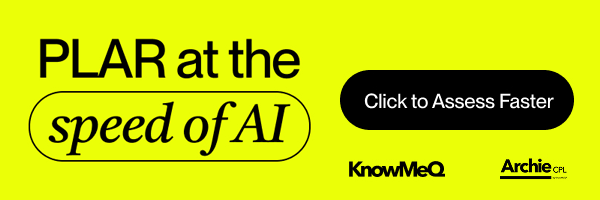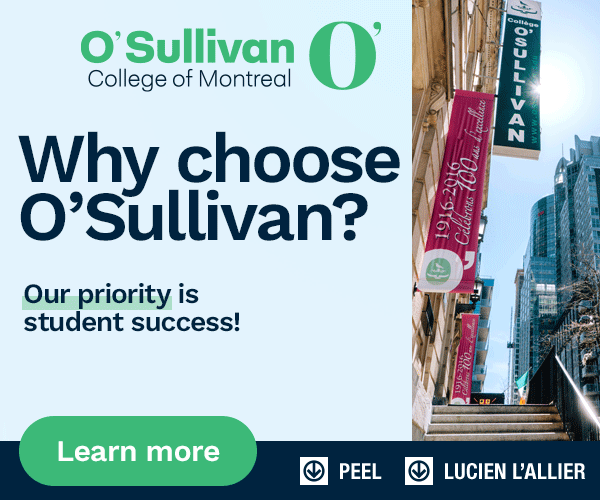There is no question that the landscape of post-secondary teaching and learning is very different in the era of COVID-19. The shift to distance learning has presented many challenges for students and instructors alike - such as access to space and appropriate technology, feelings of isolation, anxiety and a sense of longing for more normal' academic experiences. Many people simply find they function more effectively in the person-to-person world of interaction than they do in the virtual one.
Yet as difficult as the shift to remote learning has been, it has presented unique and exciting pedagogical opportunities. There is no doubt that the pandemic is creating huge challenges for many employees and students', says Dean of the Faculty of Arts Dr. Shannon Dea. But it is also helping us to discover new ways to make teaching and learning flexible, accessible and effective.' The opportunity to create innovative learning experiences in the remote learning environment is one that members of the Faculty of Arts have taken up in some very exciting and very creative ways.
Thanks to video conferencing, many professors have been able to introduce their classes to high-profile academics and colleagues from around the world. These are guest experts whom students would never get a chance to meet in "normal" times', says Dea.
Dr. Raymond Blake is a Professor of history in the Faculty of Arts, and an expert in the field of Canadian politics. He arranged for former Prime Minister Brian Mulroney (who led the country from 1984-1993) to attend a session of his HIST 403/803 course on Studies in Canadian History. It was an extraordinary - perhaps even once in a lifetime - opportunity for students to interact one on one with a former Canadian Prime Minister. He was scheduled to stay for a hour but was there for nearly two - he was engaged, lively, funny at times, passionate and seemed indeed to take his time with the students seriously', says Dr. Blake.
Psychology professor Dr. Gordon Asmundson was likewise able to arrange a virtual classroom visit with a high profile guest: Dr. Andres De Los Reyes, Professor of Psychology at the University of Maryland at College Park, and incoming Fulbright Canada Research Chair in Mental Health. Dr. De Los Reyes is an internationally known expert in the assessment and treatment outcomes of mental health in children and young people. He is also the author of The Early Career Researcher's Toolbox, a book outlining strategies for successful academic career planning. Dr. De Los Reyes led a virtual research career planning session in Asmundson's PSYC 801 graduate seminar, a discussion the students found both productive and engaging.
Like Asmundson, history professor Dr. Philip Charrier is also using the virtual learning environment to help students clarify their career aspirations and goals. He has been inviting history alumni who are now in graduate school and in the work force to his remote learning classes for question and answer sessions and to discuss how they have translated their degrees and related knowledge and skills into the professional sphere. These visits have brought the "fresh air" of the outside world and other cities/countries into the digital learning sessions and helped students connect their current coursework to their career aspirations and dreams', says Charrier.
History professor Dr. Donica Belisle is likewise taking advantage of the increased interactivity afforded by a new remote learning environment. In her HIST 420/820 class on Doing Women's and Gender History she has been experimenting with student-led presentations aimed at exchanging primary and secondary digital resources. Using a video conferencing 'share screen' function students are able to present brief instructional tutorials to one another on the various web resources they have been using to conduct research.
A similarly 'hands on' approach has been taken by Geography and Environmental Studies professor Dr. Ana Hidalgo in her GEOG 346 course on Urban Planning. Through video conferencing and remote learning students have had the opportunity to be involved in an urban planning project connecting them to the community and to the City of Regina. The course concluded with the online presentation of a Neighbourhood Plan Framework', and a report to the community and The City of Regina's planning department.
According to Dr. Dea, remote learning is making some aspects of the university experience accessible in other surprising new ways. Online "breakout rooms" easily support group discussions in classes in which there typically isn't much opportunity to do small group work. Likewise shy students who dread putting their hands up in class are actively engaging in class discussion using chat functionalities'. Even study abroad opportunities have moved into the virtual sphere, enabling students whose home life doesn't allow them to travel to have international experiences', says Dea.
Despite the various challenges of the pandemic-era reality of remote learning and working, in the digital classroom there exists a powerful opportunity to expand the boundaries of the university experience for students and instructors alike - an opportunity Arts faculty members have responded to in compelling and meaningful ways.













